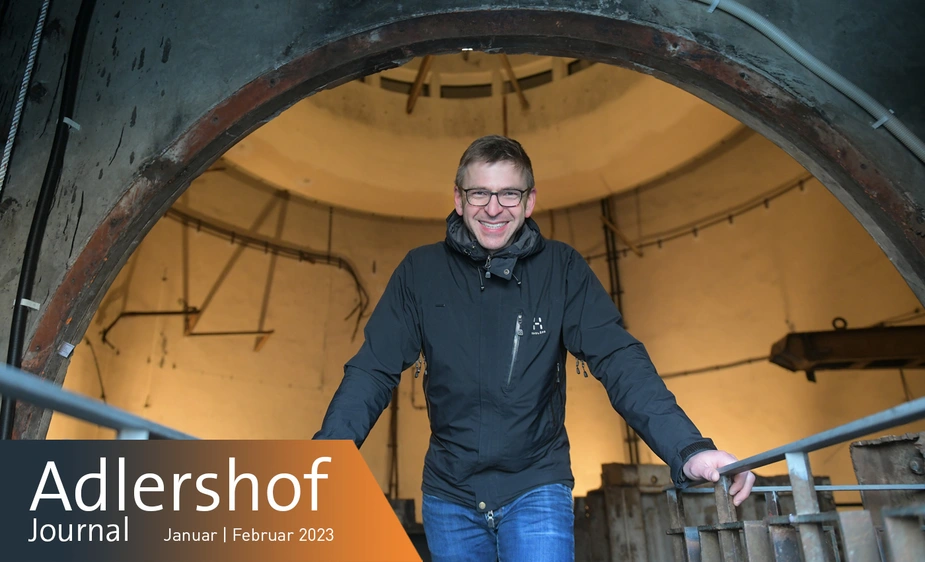The earth surveyor
Christian Freier works on quantum sensors in Adlershof
A German, an American, an Australian. And an idea that equally fascinated the three of them. It was about basic research in physics, which, in this case, was to create a then-novel measurement procedure based on using laser-cooled atoms and make it ready for the market and its use in people’s everyday life.
The trio was brought together at the Australian National University in Canberra purely by coincidence. Although they had seen the world, this was still the other side of it when viewed from Adlershof. They were nomads. That’s how they saw themselves. A fact that was also to be reflected by the name of the company that they birthed in Australia in late 2019: “Nomad Atomics”.
“It was important to us to have a presence in Europe and Berlin was a logical choice for us,” says Christian Freier, the German in the founder’s trio. He returned and moved into an office in the Innovation and Start-up Centre (IGZ) on Rudower Chaussee in mid-2020. He knew his way around from his time as a PhD student in Adlershof. From Alt-Treptow, where he has lived since then, it takes him half an hour by bike to get to it.
Nomad Atomics GmbH, the German branch of the Australian parent company, was founded in September 2021. “I am the only full-time employee,” says Freier. “We are working on expanding the team.” By the end of 2023, laboratory operations should pick up in Adlershof.
The now 38-year-old has had a penchant for nomadism his entire life. As a young child, he moved from the remotest part of Germany’s southwest to the northeast of the republic, from Blieskastel in Saarland to Plau am See. He completed his alternative civilian service in Berlin in 2003 and enrolled – “I have always been interested in physics and looked at the stars with a telescope as a child” – at Technische Universität Berlin.
After graduating, he went to Calgary in Western Canada as an exchange student, where he met his wife, a Canadian from Nova Scotia, one of the Atlantic provinces. His final thesis as well as his PhD thesis at Humboldt-University Berlin led Freier to the research area that was to become his scientific home, atom interferometry. It makes use of the “quantum nature of cold atoms”, says Freier, to determine their acceleration and other environmental influences. Among other things, the method makes it possible to measure the earth’s gravitational field.
Exploring rock structures under the earth's surface, monitoring groundwater levels, navigating the high seas – the method does all this with a precision and reliability that none of the conventional measuring methods can match. Atom interferometry provides us with data on the verge of the immeasurable and beyond the perceptible, says Freier, for example, on the force of attraction between two 70-kilogram bodies with a distance of one metre between them.
Quantum sensors working according to this principle are currently only available for laboratory use. “They are still made up of several components and are relatively bulky,” says Freier. “The result of our innovation will be to integrate all this into one compact and easy-to-use unit.” A user-friendly device like this would have numerous applications, including in mining, transportation, and environmental protection. According to Freier, it would also be conceivable in the future “to install a small quantum sensor into cars, which supports the navigation system in places where GPS signals are unavailable or unreliable”.
Dr. Winfried Dolderer for Adlershof Journal
